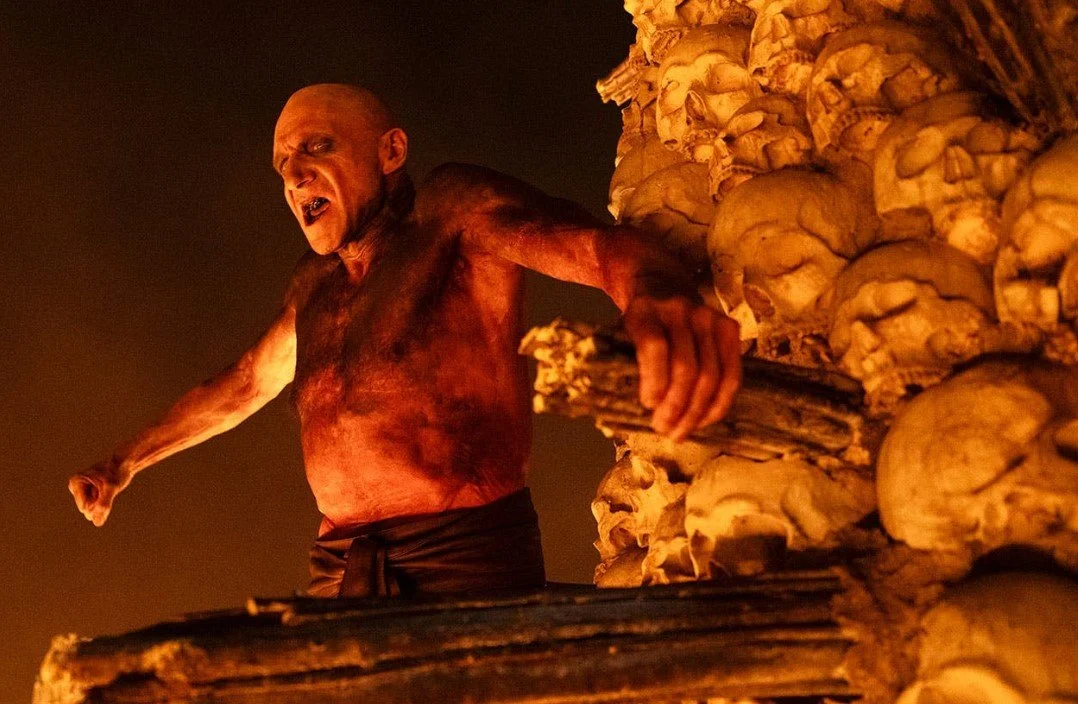‘Big Night’ REVIEW: A farcical journey in a hellish landscape
‘Big Night’ REVIEW: A farcical journey in a hellish landscape
Big Night is this year’s MMFF Best Picture winner.
Director Jun Lana deals with politics in very unique ways. In Barber’s Tales, he sets the story in a small enclosed mountain town under the backdrop of Martial Law. Anino Sa Likod Ng Buwan presents the armed conflict between the Philippine military and communist resistance as the catalyst for revealing suppressed emotions and secret identities. In these stories, his lead characters almost always reach an epiphany that ousts their selfish reveries, allowing them to put the greater good over themselves.
Similarly, Big Night approaches the bloody drug war headfirst, but it indulges in the selfishness of people, their desensitization to violence, and the cutthroat environment the poor have to operate in. Not to mention its use of comedy to bring across biting social commentary while bringing the audience’s guard down. Dharna (Christian Bables) descends into the different stages of hell, and as she goes deeper and deeper, the comedy quickly dissipates and turns into an immobilizing tragedy.
Right from the opening scene, we are treated to Lana’s affection for long takes only to jolt us with a random act of violence, which immediately turns into the butt of a joke. Dharna finds her past name in the deadly “watch list” compiled by barangays to tag drug addicts and pushers, but her mission to clear her name isn’t limited to dour and sullen moments. It also finds ways to mock the very structures and institutions that marginalize her. It’s a tricky balancing act between two competing tones, but Lana manages to execute (no pun intended) it well for the most part.
Christian Bables plays Dharna in the film—it’s a marvelous performance.
In doing so, Big Night presents more widespread appeal since a common (and sometimes unwarranted) complaint lodged against independent films is that they’re too depressing and gloomy. Admittedly, the kind of reality checks that those films provide aren’t for everybody, and insofar as more people should watch them, they might first need a film that can gradually open the gates to those stories—Big Night positions itself to be exactly that kind of film.
In its star-studded cast, what shines brightest is Christian Bables and his self-assured performance. Dharna is portrayed as a likable character who is kind-hearted and humble. Notably, the addition of her name in the watchlist refers to her birth name, a vestige of her past self, which she is forced to confront since it threatens her present queer identity.
Bables spends most of the film begging for her name to be stricken off the watch list because it is simultaneously not her in the sense that she is far from being a ruthless drug pusher but also in the sense that she no longer identifies with the name at hand. The inability of bureaucratic institutions to recognize queer identity, and at times even loathing the idea of it (as represented by Soliman Cruz’s Mr. Roja), is another angle of attack that Dharna must shield herself from. Bables translates this inherent gender conflict with the law and the political maneuvering that goes along with it really effectively in his acting.
Soliman Cruz and Christian Bables in Big Night.
All the barangay officials use Dharna for their own benefit in one way or another, indicating a well-oiled machinery that exploits the poor for their dirty labor. Madam Chair Cynthia (Eugene Domingo) is an egotistical official who puts a premium on her connections and maintaining the corrupt status quo. Mr. Roja (Soliman Cruz) is a homophobic and religious hypocrite deserving of ridicule. And Donato Rapido (an amusingly over-the-top John Arcilla) represents the fabled history of the Philippines electing movie stars as politicians.
The only considerate official is Melba (Janice de Belen), who is kind not because of some innate rectitude, but because she recognizes the wicked underbelly of the society she lives in and the need to offer more equitable assistance. Dharna’s starry-eyed boyfriend Zeus (Nico Antonio) and her father and siblings (Ricky Davao, Awra Bringuela, and VJ Mendoza, respectively) provide her with a support system despite their flaws and misgivings.
These people in Dharna’s circle carry a timbre of cynicism, their desires having been stripped to their barest parts. Most of them are influenced by the desire to live peacefully, to feel validated and empowered with their own identities (as shown in Zeus’ desire to win the beauty pageant), and, crucially, the desire to live a dignified life. Yet, it is difficult to reconcile ethical principles and the social realities the poor must face. The dichotomy between the two often boils down to sacrificing the former in favor of a better life.
There’s a scene where Dharna’s mother (Gina Alajar) tells her son “Bakit pa tayo nagpapahirap na maging mabuti?” (Why are we torturing ourselves to be good people?) It raises a valid dilemma that the have-nots continually grapple with. Can we blame them for wanting to have a better life? To experience the fleeting taste of bliss without any regard for consequences of how to get there? Because for the longest time, the “good” way has rarely reaped them any rewards, it just deepened their premature grave even further.
Most of the film’s comedy comes from Dharna going through many lengths to prove her innocence. She must do futile and insipid acts that aren’t even connected to her mission of vindication. It’s almost as if we are laughing at Dharna’s expense, indulging in the absurdity of her situation and eagerly anticipating the next power-play move handed to her. But, Director Lana pulls the rug from under us, gently furrowing a path where he can plant tiny seeds of indignation and political fervor on soil that is fertilized by laughter.
Once the laughter subsides, a gradual drum of anxiety starts infiltrating Dharna’s world. What once was a roundtrip ticket into Dante’s Inferno turns into a nightmare that ensnares our dignified lead character. The ending is striking not just because it is so ardently different from past Jun Lana endings but also because it acknowledges how difficult it is to not be cynical during these times. For some people, maybe their epiphany is not putting the greater good over themselves because, in the past five years, our corrupt structures have mastered promoting the lie that the greater good is not worth fighting for.
‘Big Night’ is now showing nationwide.

















